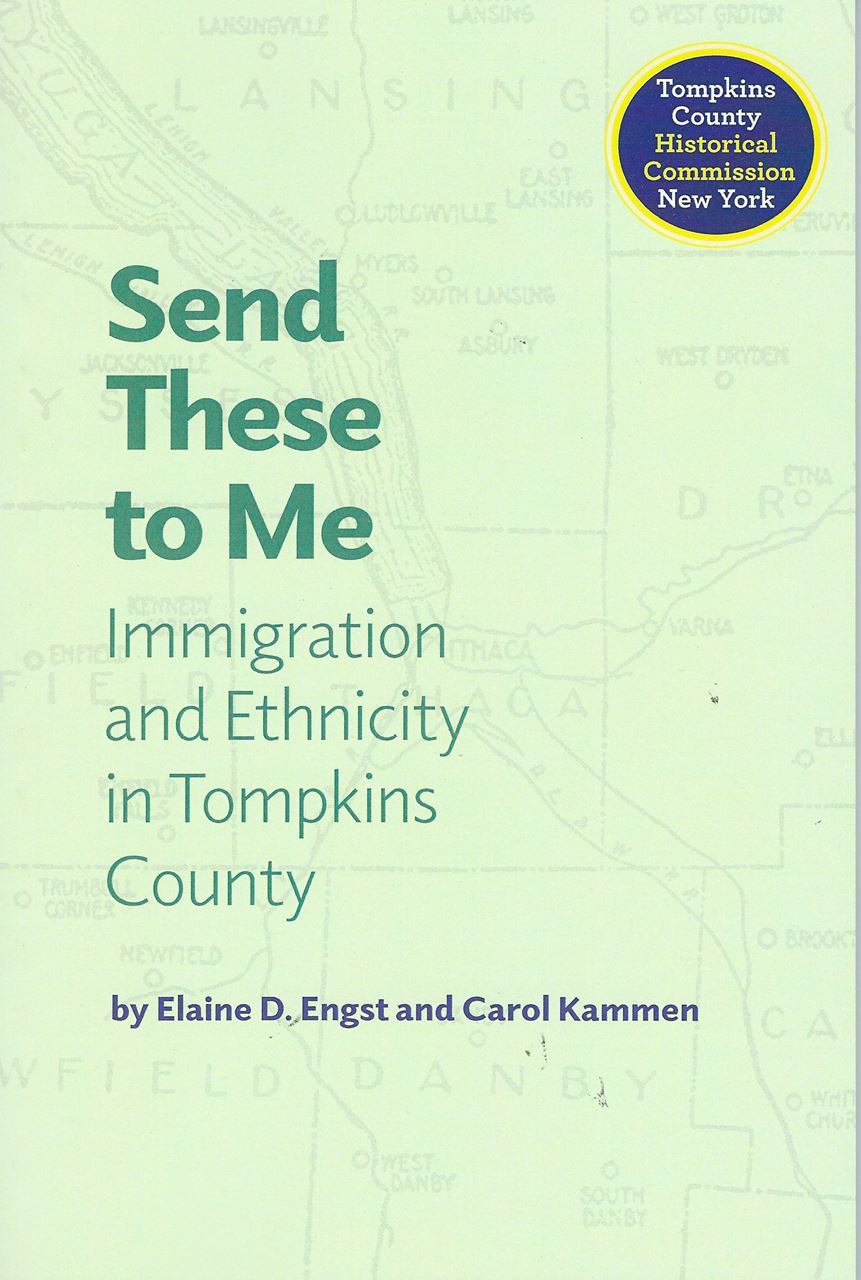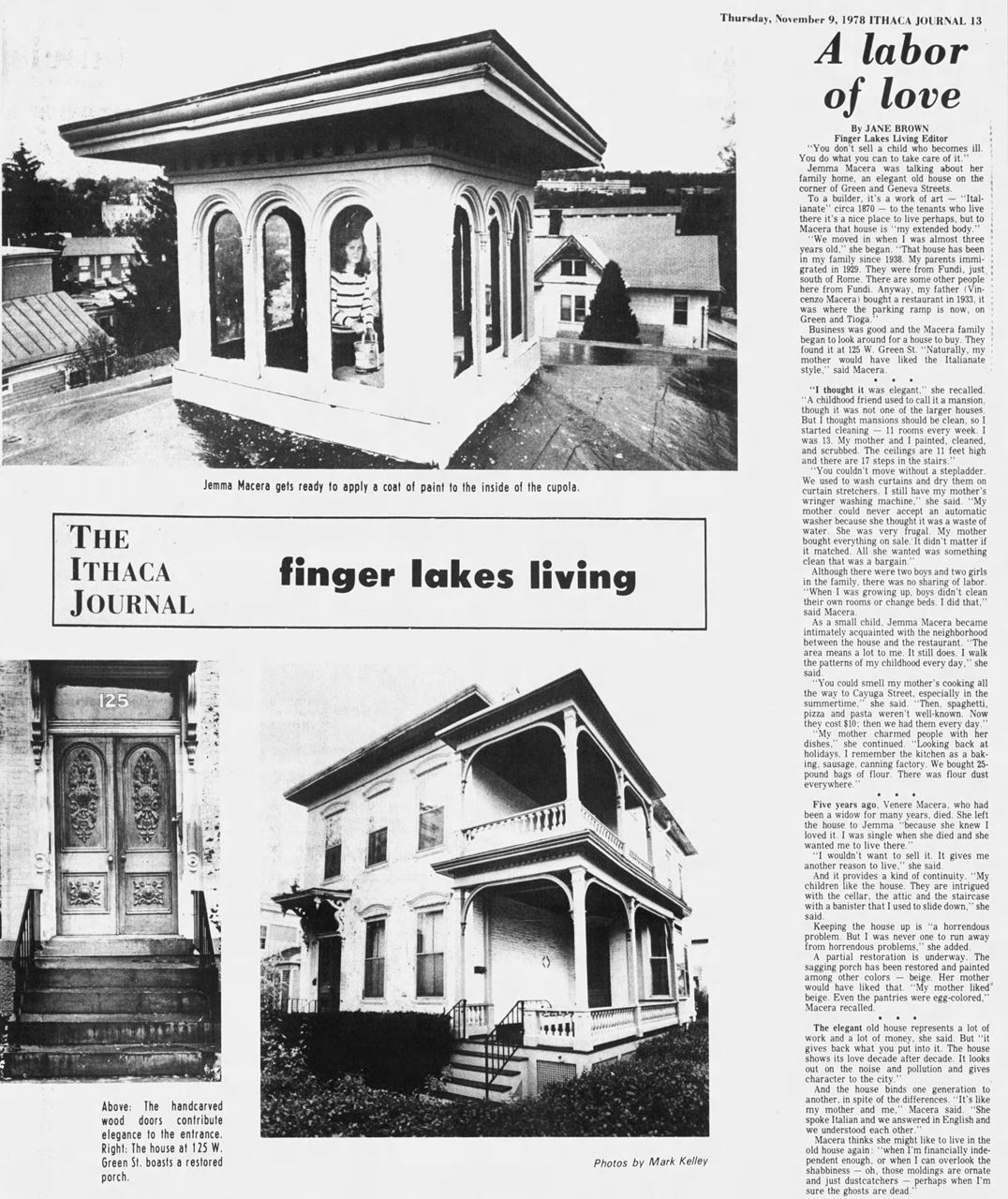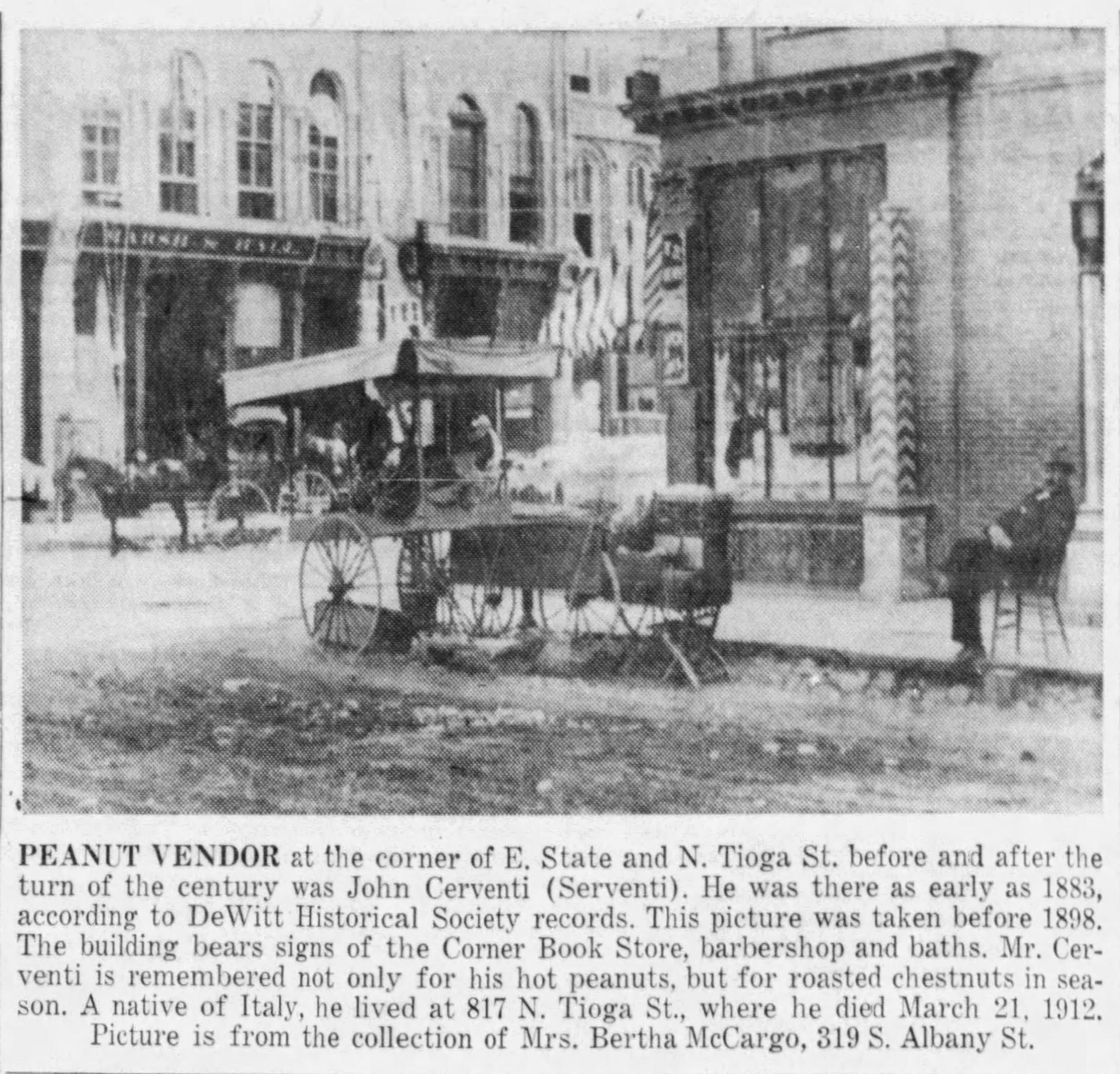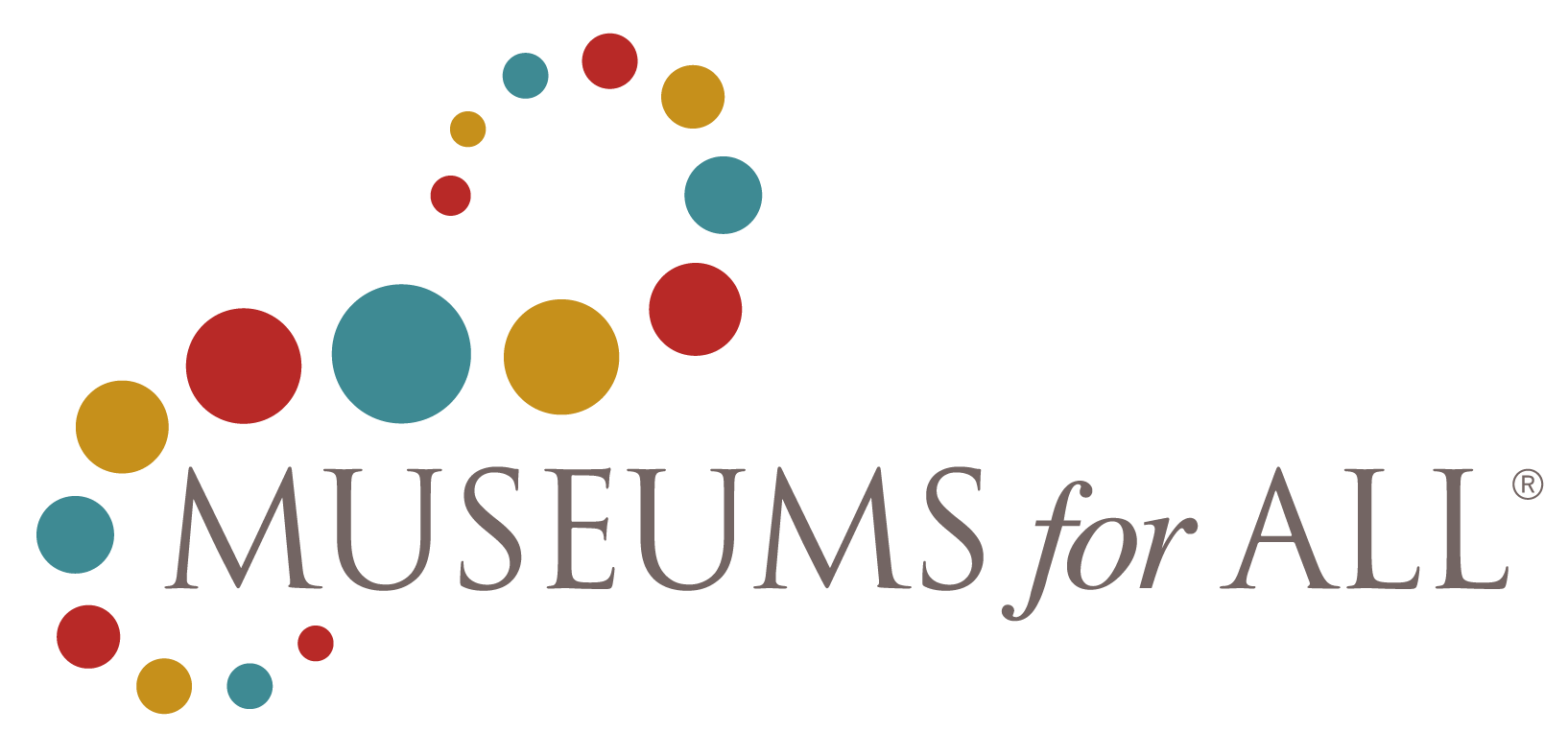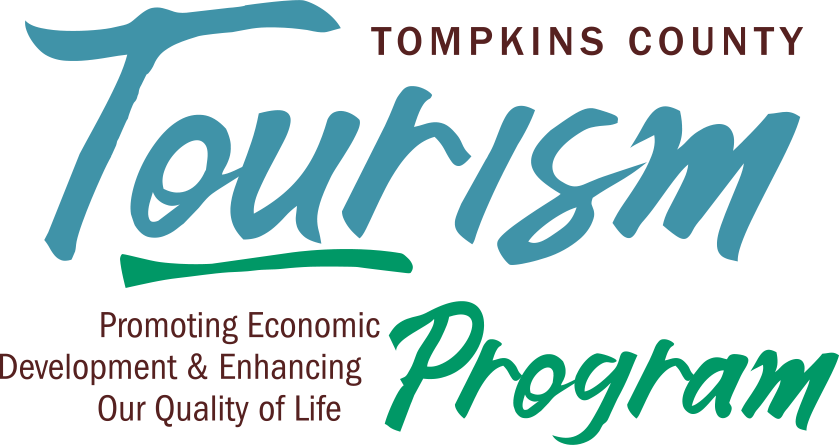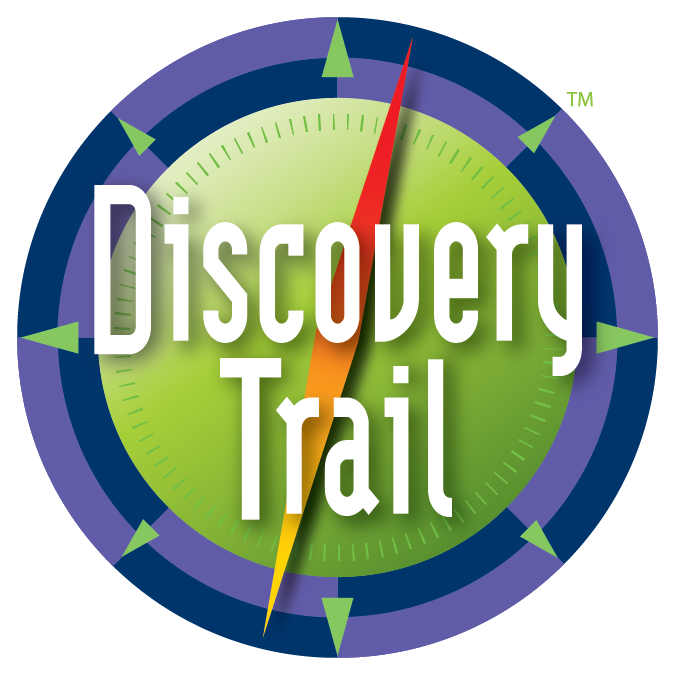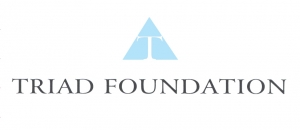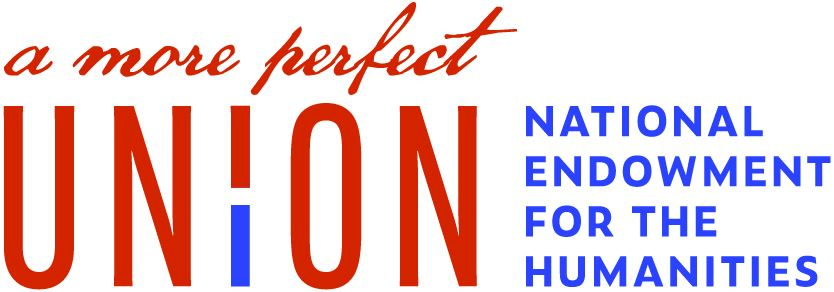- Home
- Italian American Heritage Month
ITALIAN AMERICAN HERITAGE MONTH
OCTOBER
Though the earliest Italian American residents of Tompkins County may never be certain, there are U.S. Census records dating back to 1880 which show five individuals residing in Ithaca who are noted as being born in Italy. In the many decades since, Italian Americans have particularly formed communities in Ithaca, where they have become inventors, industry magnates, proprietors, and pillars of the Ithaca and Tompkins community. Italian Americans congregated in places like the Immaculate Conception Church, the major Catholic church in Ithaca, as well as mutual aid societies like the Sons of Italy. The Sons of Italy opened a chapter gathering house in April of 1950 at 417-419 W. State St "Many of the [Italian immigrant] families settled in the West End and the Northside of Ithaca. A search of the city directories from the 1920s and 1930s shows residences and businesses with the names of those immigrant families: Battisti, Bordoni, Cacciotti, Ciaschi, Guidi, Lucatelli, Paolangeli, Petricola, Raponi and Saccucci." (See 'A Look Back At.. The Italian American Community in Ithaca') One of the earliest industries primarily occupied by Italian Americans in Tompkins were the bakeries. The Ithaca Bakery, which has existed under multiple owners since it was founded by Bruno Mazza as the Bruno Mazza Bakery over 100 years ago, has been premier among Ithaca and Tompkins’ bakeries ever since. Bruno Mazza himself was an entrepreneur and community organizer, becoming the proprietor of several businesses throughout his life. Mazza was also the first president of Ithaca’s Italian American Mutual Aid Society, the Sons of Italy. The Ithaca chapter was founded in 1918, and Mazza later served as its treasurer in 1922 when they affiliated with the Great Lodge of the Sons of Italy in New York City. The more contemporary history of Italian Americans in Ithaca and Tompkins County is recorded in less detail. Some individuals, like Frank L. Battisti—a renowned wind ensemble director for Ithaca High School who was also an instructor at Ithaca College—continued the legacy of Italian Americans in the Ithaca community, as Frank L. Battisti is the son of Frank Battisti, a chartering member of the Sons of Italy chapter in Ithaca. The Sons of Italy in Ithaca operated at least through the late 1980s to early 1990s, but no longer exists today. The chapter's gathering house is, as of 2024, somewhat preserved but has been converted to fit the needs of the Kitchen Theatre Company. Some of the earliest businesses established by Italian-American immigrants like Fontana's Shoe Sales & Repair are now community staples, boasting 100+ years in business. Italian American Heritage Month was first celebrated in October 1989 by special proclamation Pub L. 101-128 of U.S. Congress and President George H.W. Bush to coincide with Columbus Day. Italian American Heritage and Culture Month was again proclaimed in 1990, 1993, and 1994. Establishing Roman Catholic Churches in Tompkins County
Learn more about the Immaculate Conception Church located at 113 N. Geneva Street on PocketSights and from this 2023 article by the Ithaca Times. |  Ithaca Journal, June 5th 1922 |
Our manuscript collections include Finding Aids, which are detailed box lists that describe the contents of each collection. They are critical introductions to the collections, and some of the many Finding Aids in The History Center's archives can be reviewed on our website.
Contact archives@thehistorycenter.net to make an appointment to see these collections in person, or if you are searching for a collection not listed online.
Archives & Related Collections
Italian-American Local History Articles
| Send These to Me: Immigration & Ethnicity in Tompkins County For related sections:
|
Connect with our archivist to contribute to the archival collections documenting Italian and Italian-American history in Tompkins County.
Jemma Macera-Wilcox Archives
| The History Center archives includes two collections from the Macera family, compiled by Jemma Macera, a second generation Italian-Ithacan. Jemma's diary collection begins in 1950 when she was in 10th grade at Ithaca High School and continues until 2012. This collection includes several articles Jemma wrote for the Ithaca Journal about her family history, and the story of her parents and grand parents immigration to the United States. These materials can be reviewed in person in our Research Library. Please contact archives@thehistorycenter.net. -------------------------------------- The Ithaca Journal article to the left from 1978 details Jemma's work repairing and preserving her family home located at 125 W. Green St. Her parents Vincenzo Macera and Angelina Alby had originally purchased in 1938. |
"You could smell my mother's cooking all the way to Cayuga Street, especially in the summertime," she said. "Then, spaghetti, pizza and pasta weren't well-known. Now they cost $10; then we had them every day." My mother charmed people with her dishes," she continued. "Looking back at the holidays, I remember the kitchen as a baking, sausage, canning factory. We bough 25-pound bags of flour. There was flour dust everywhere."
Jemma Macera recalling her childhood in Ithaca - The Ithaca Journal, November 9th 1978
ITALIAN-AMERICAN BUSINESSES & COMMUNITY IN TOMPKINS COUNTY
Published in The Ithaca Journal, September 11th 1963 |
The earliest Italian American to arrive in Ithaca of whom there is significant recollection is John Cerventi, who is recorded to have been
in Ithaca as early as 1883. Cerventi sold peanuts and chestnuts from a cart

in his first years in Ithaca at the corner of East State Street and North Tioga Street, now a part of the Ithaca Commons, as noted by a photograph of him dated before 1898. W. Glenn Norris, a former Tompkins County historian and County Clerk, recalled in an Ithaca Journal article in 1963 that Cerventi later had a corner store where he sold all manner of things from knickknacks and trinkets to penny candies and his classic roasted peanuts.
Ithaca’s Sons of Italy chapter no. 1146 was at its peak in the first half of the 20th century, gathering financial aid for injured veterans from World War I and II, providing scholarships for local students, and hosting events for Italian Americans across the community. There was even a Sons of Italy baseball team, which played in the local leagues throughout the 1940s. The Sons of Italy opened a chapter gathering house in April of 1950 at 417-419 W. State St thanks to the generous donations of its membership, and the house quickly became a center of the community for many years.
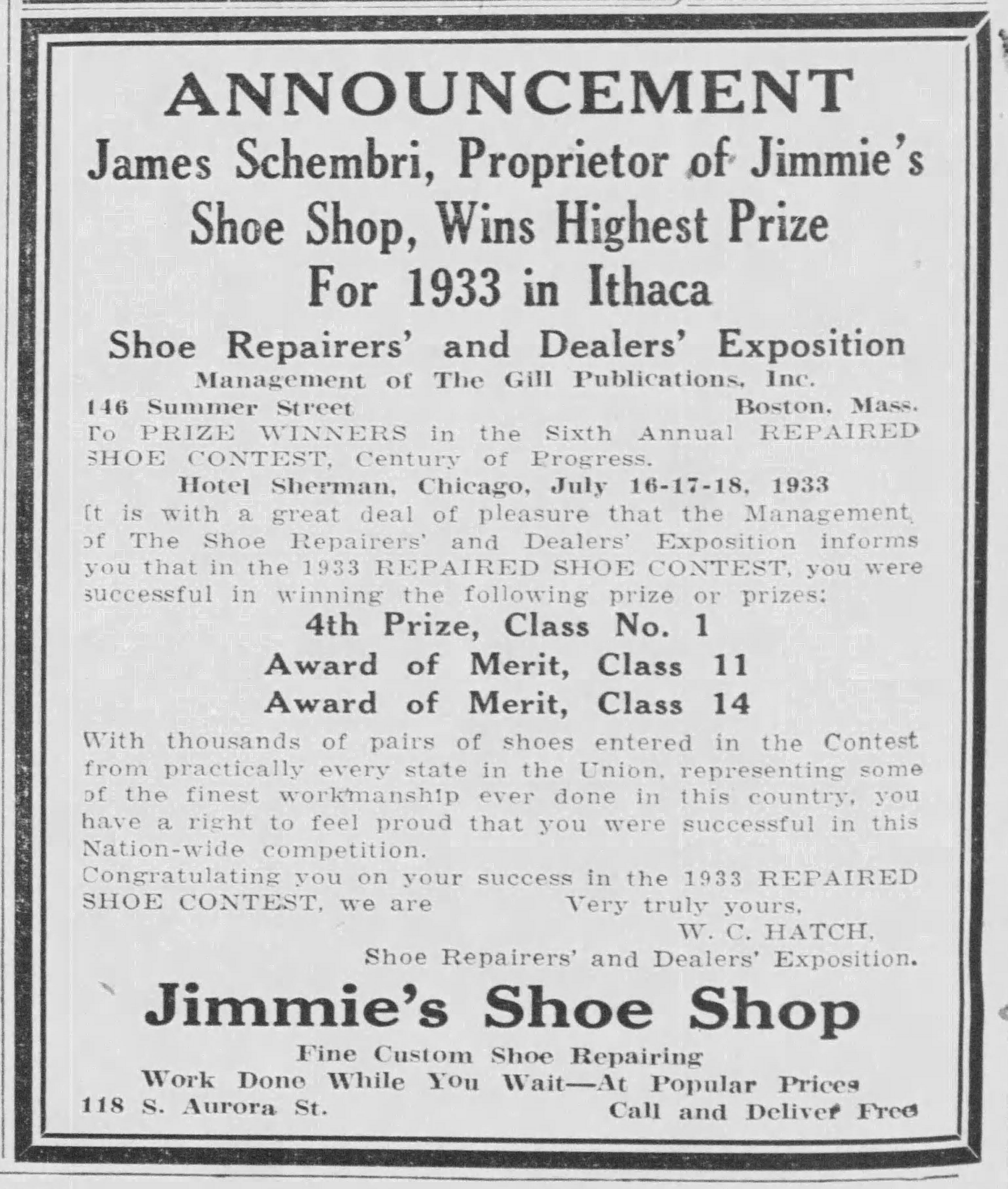 Another industry in which Italian Americans excelled was shoemaking and shoe repair. The Fontana family which became the namesake of Fontana’s shoe store on Eddy Street operated shoemaking and repair stores throughout Ithaca over the course of the 20th century. Other Italian Americans like Peter Scusa and Luigi Petricola had their own stores in town, and were well-loved members of the Ithaca community, especially among its Italian American population. At one point in the early 1930s there was a union of cobblers called the Ithaca Shoe Repairers’ Organization, consisting largely of Italian Americans.
Another industry in which Italian Americans excelled was shoemaking and shoe repair. The Fontana family which became the namesake of Fontana’s shoe store on Eddy Street operated shoemaking and repair stores throughout Ithaca over the course of the 20th century. Other Italian Americans like Peter Scusa and Luigi Petricola had their own stores in town, and were well-loved members of the Ithaca community, especially among its Italian American population. At one point in the early 1930s there was a union of cobblers called the Ithaca Shoe Repairers’ Organization, consisting largely of Italian Americans.
One of the most famous Italian Americans to come out of Tompkins County was Frank Speno, a businessman who became a millionaire after inventing a railroad ballast cleaning machine. He employed many Italian Americans in the first half of the 20th century and operated a bank in Ithaca on West State Street.
HistoryForge is an innovative digital history project combining maps, archival records, and census data that allows any community to explore its local history through the individuals who lived there and the buildings and neighborhoods they lived in. Tompkins County HistoryForge includes over 100,000 digitized census and building records of county residents from 1880-1950. By searching the database using the "Place of Birth", "Mother Tongue", and "Place of Birth of Mother or Father" filters on different census years you can learn about Italian residents in Tompkins County during the 19th & 20th century. |
Tompkins HistoryForge data from the 1940 U.S. Census showing over 12 families living in downtown Ithaca with at least one member whose Place of Birth was Italy. Though this may appear to show few individuals, this image represents a mere fraction of the 422 Italian-born Ithacans at this time. 1942 H.A. Manning Co. Map overlaid. |
The Mazza Family
 Bruno, his wife Jennie (Giovanna) Mazza and their family is one of many Italian American families that settled in Ithaca in the 20th century.
Bruno, his wife Jennie (Giovanna) Mazza and their family is one of many Italian American families that settled in Ithaca in the 20th century.
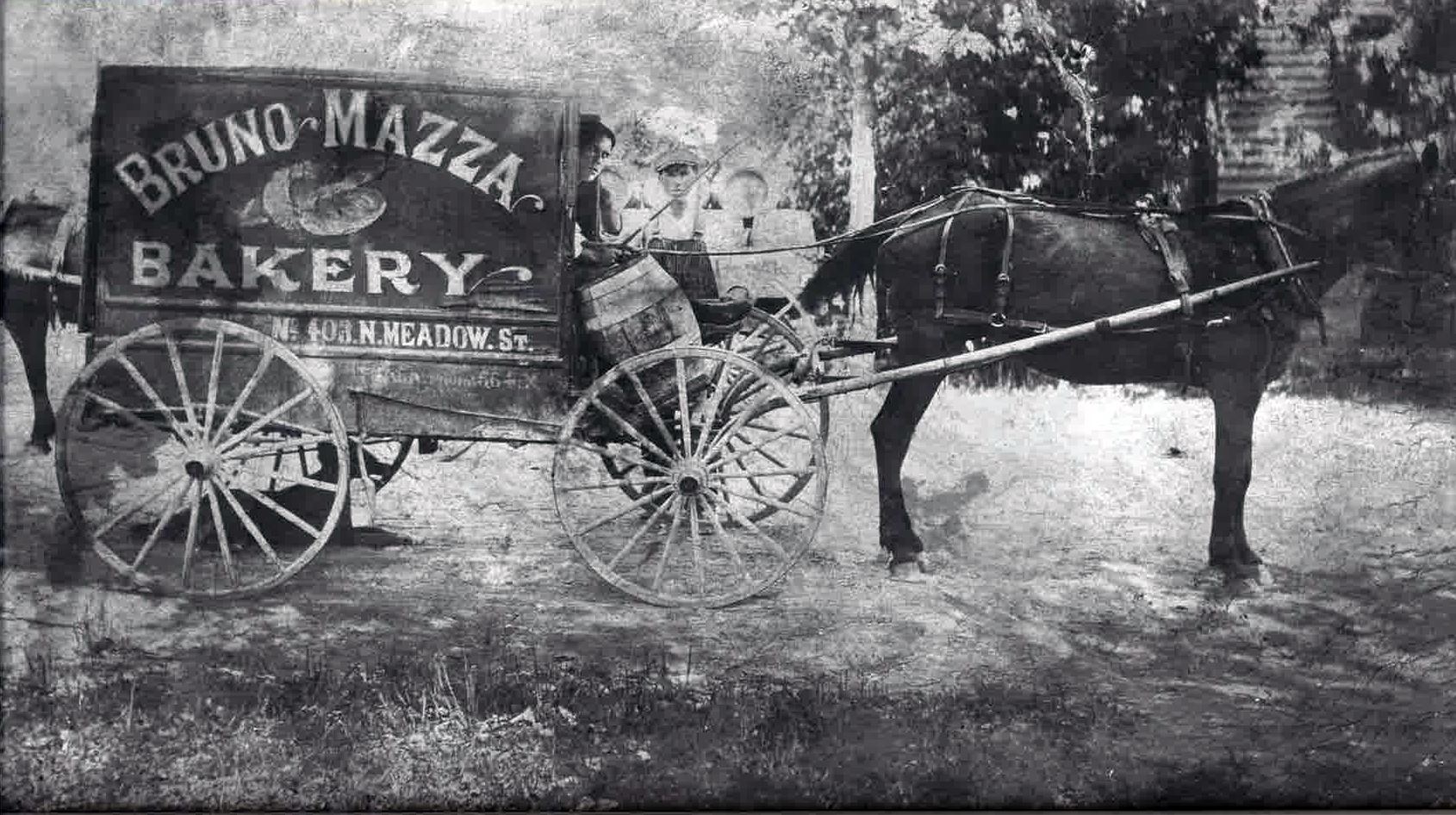 The Ithaca Bakery, was first founded by Bruno Mazza as the Bruno Mazza Bakery over 100 years ago, has been premier among Ithaca and Tompkins’ bakeries ever since. Bruno Mazza himself was an entrepreneur and community organizer, becoming the proprietor of several businesses throughout his life, though none was as successful as the bakery. Mazza was also the first president of Ithaca’s Italian American mutual aid society, the Sons of Italy. The Ithaca chapter was founded in 1918, and Mazza later served as its treasurer in 1922 when they affiliated with the Great Lodge of the Sons of Italy in New York City.
The Ithaca Bakery, was first founded by Bruno Mazza as the Bruno Mazza Bakery over 100 years ago, has been premier among Ithaca and Tompkins’ bakeries ever since. Bruno Mazza himself was an entrepreneur and community organizer, becoming the proprietor of several businesses throughout his life, though none was as successful as the bakery. Mazza was also the first president of Ithaca’s Italian American mutual aid society, the Sons of Italy. The Ithaca chapter was founded in 1918, and Mazza later served as its treasurer in 1922 when they affiliated with the Great Lodge of the Sons of Italy in New York City.
Their descendants Edward and Michael Mazza recorded an interview in 2019 as part of the 'Generation to Generation: Immigration & Food' oral history project. The full interview is preserved in the Oral Histories of Tompkins County Audio Archives and can be listened to in our Research Library.
Image from Ithaca Journal Archives, October 31st 1935.
Bruno Mazza was running as an alderman for the First Ward of Ithaca.
.png)
 "On his 1847-1848 tour of his new diocese, John Timon the bishop of Buffalo, celebrated mass in the Ithaca City Hall and the next year appointed Father Michael Gilbride as the first resident pastor of the parish. That same year a building lot (the site of Immaculate Conception's current rectory) was purchased for the congregation, and Father Gilbride collected funds for the erection of a church, The small church, called St. Luke, was completed in 1850 by the new priest, Father Michael Creedon, and dedicated on December 7, 1851...
"On his 1847-1848 tour of his new diocese, John Timon the bishop of Buffalo, celebrated mass in the Ithaca City Hall and the next year appointed Father Michael Gilbride as the first resident pastor of the parish. That same year a building lot (the site of Immaculate Conception's current rectory) was purchased for the congregation, and Father Gilbride collected funds for the erection of a church, The small church, called St. Luke, was completed in 1850 by the new priest, Father Michael Creedon, and dedicated on December 7, 1851...